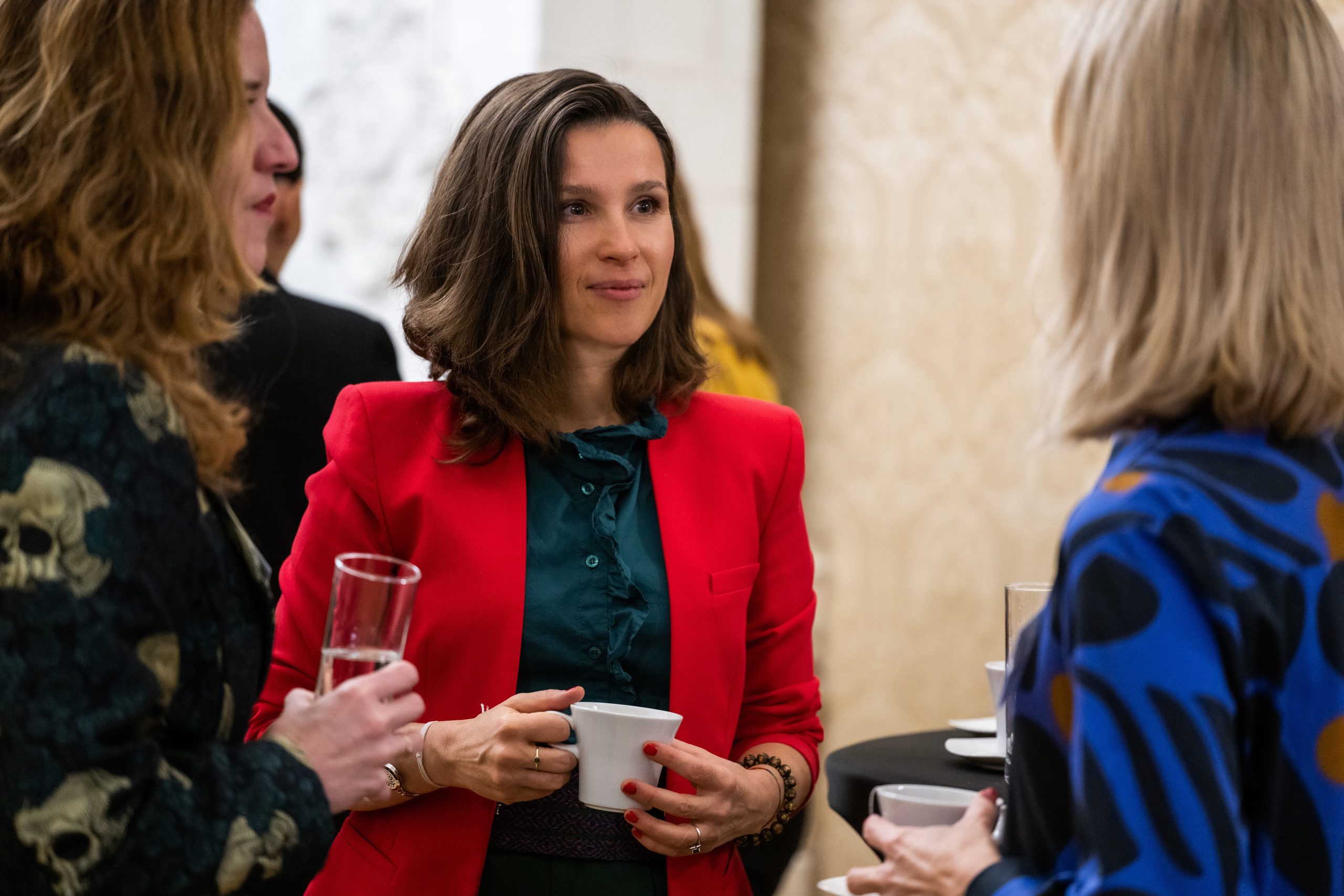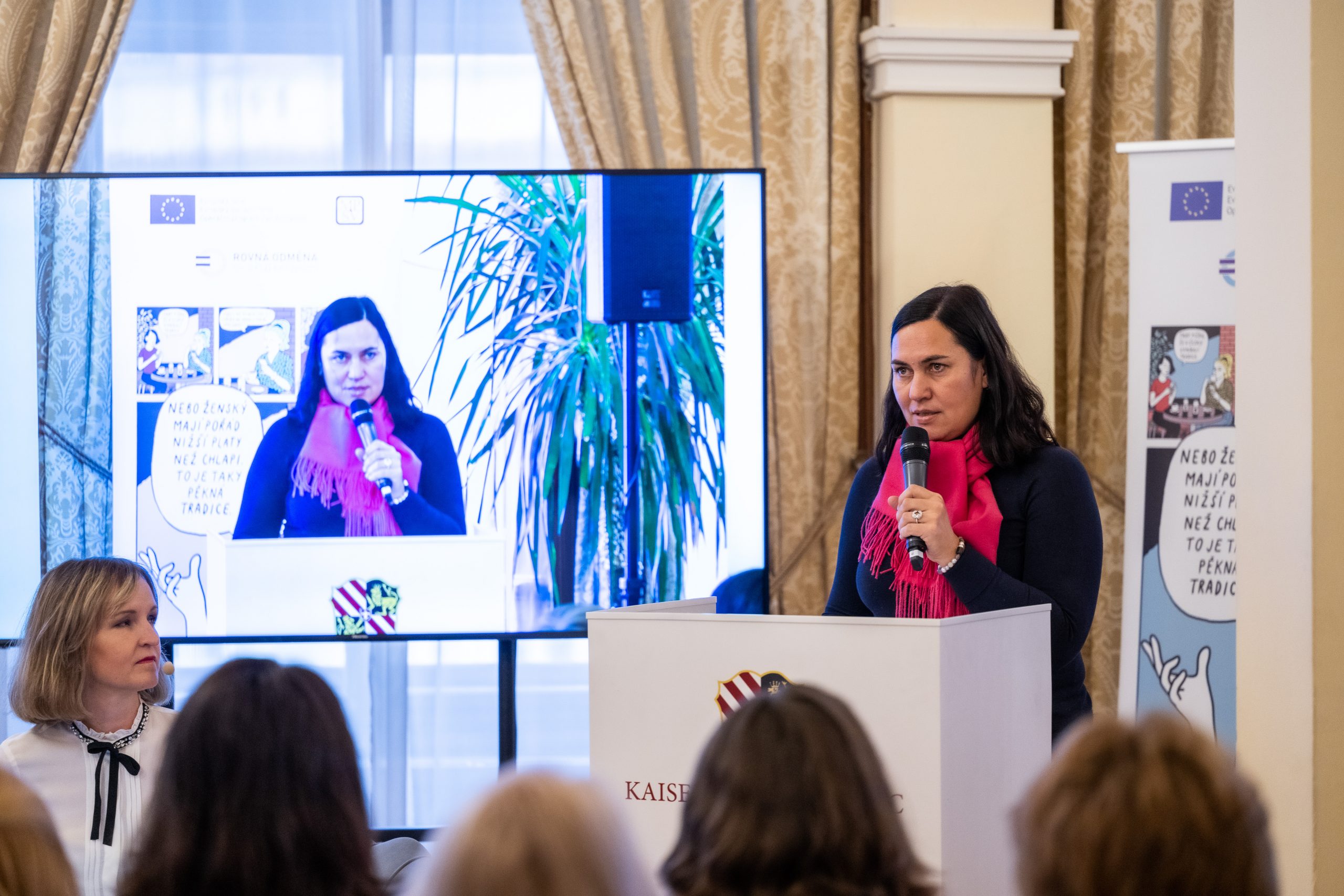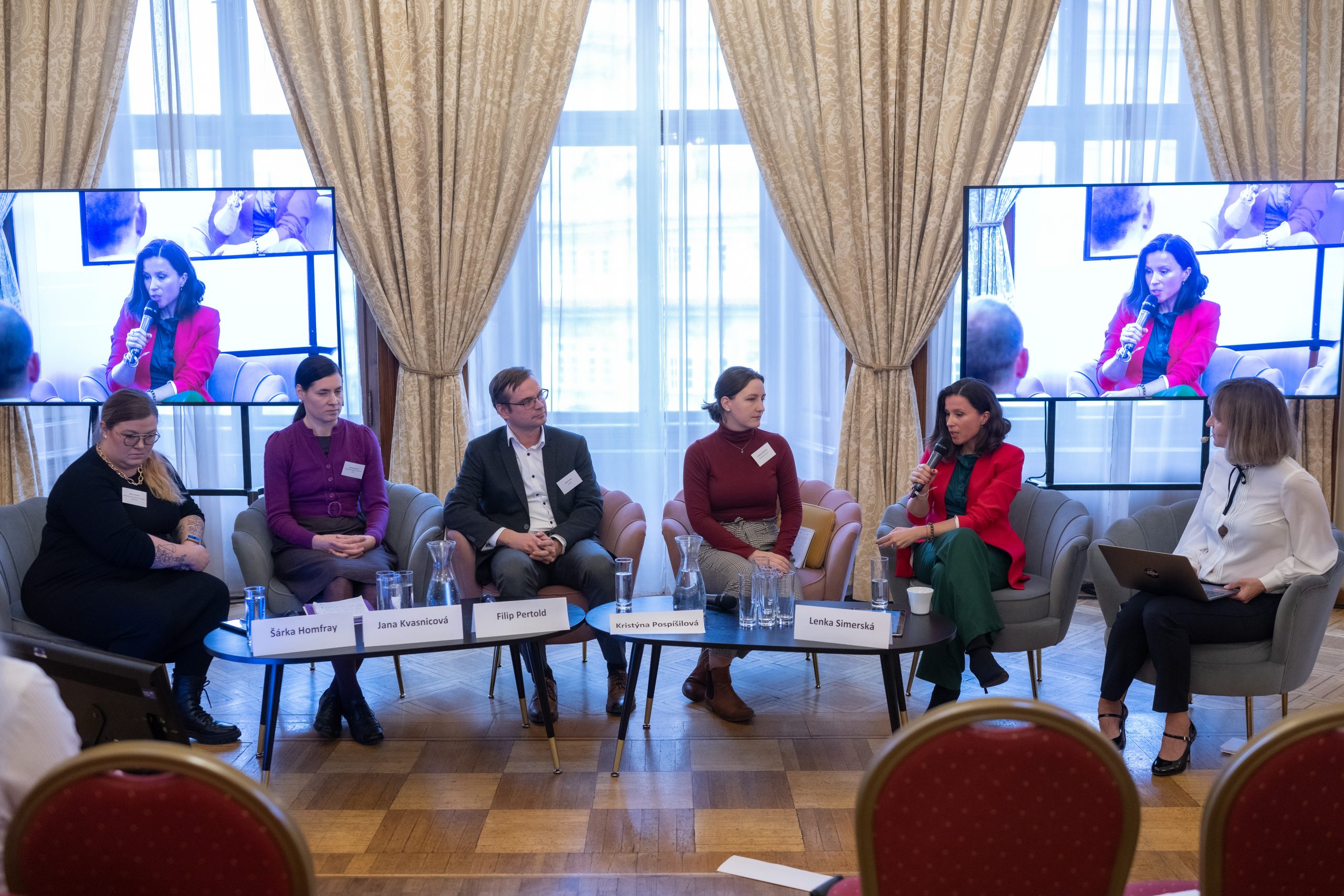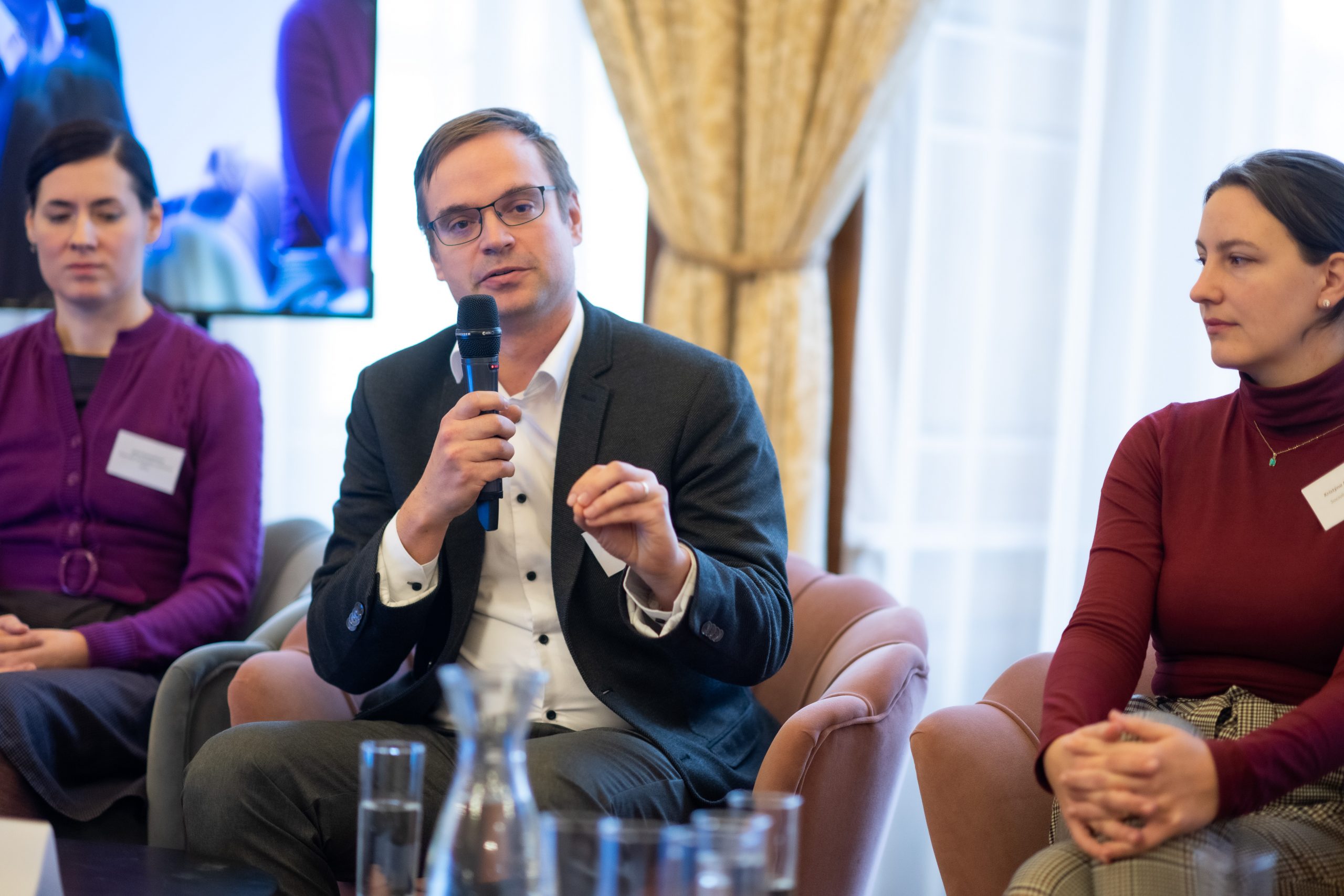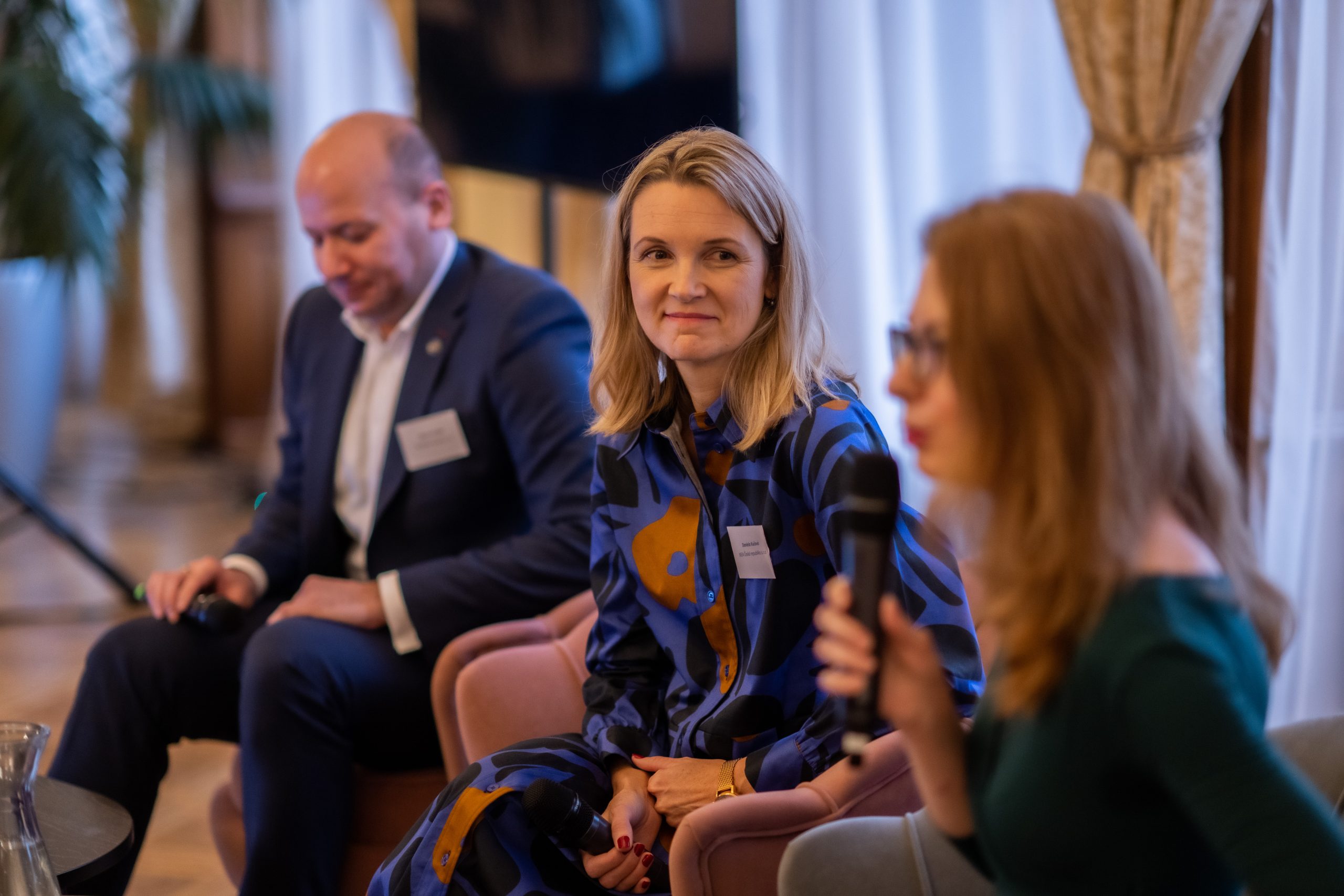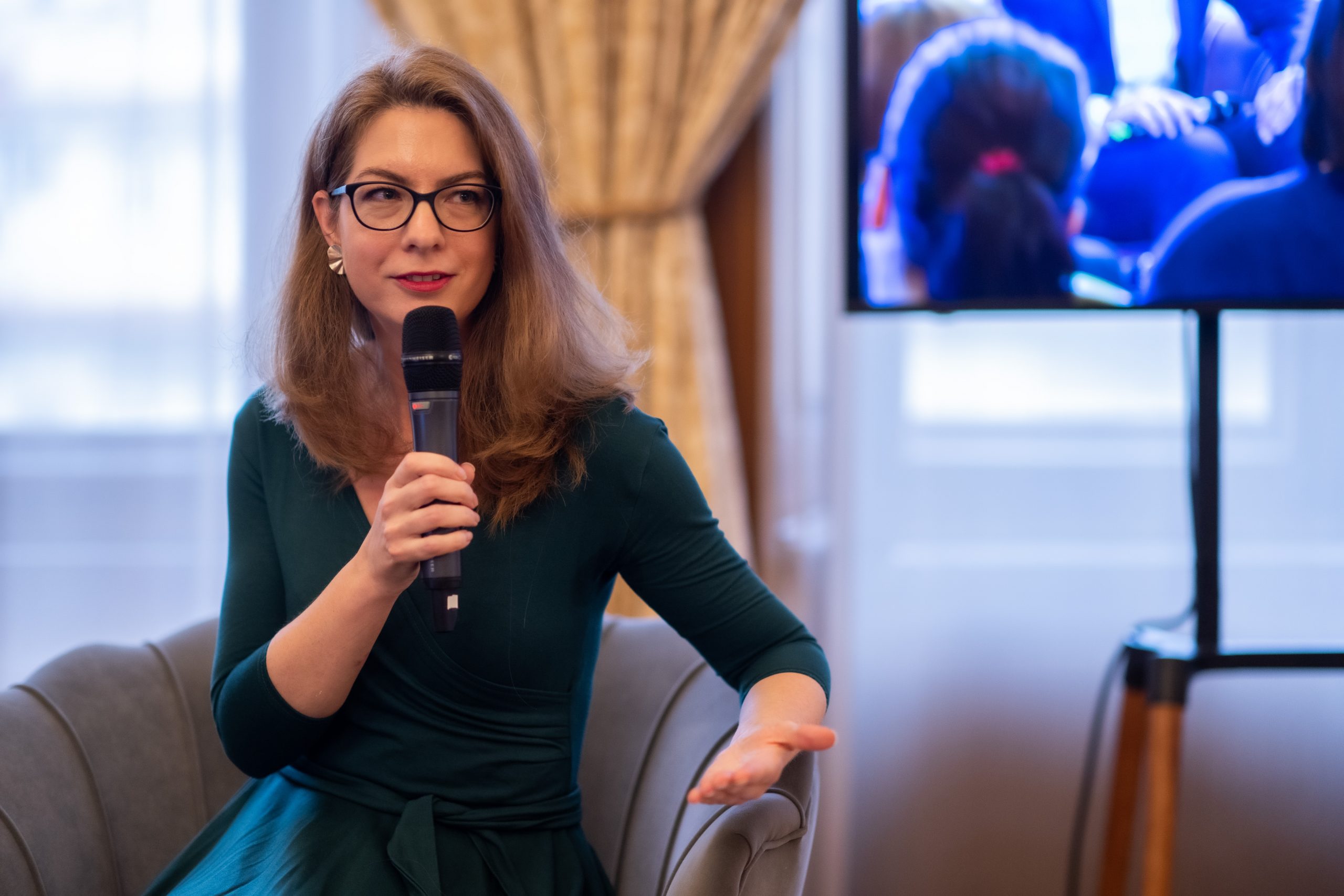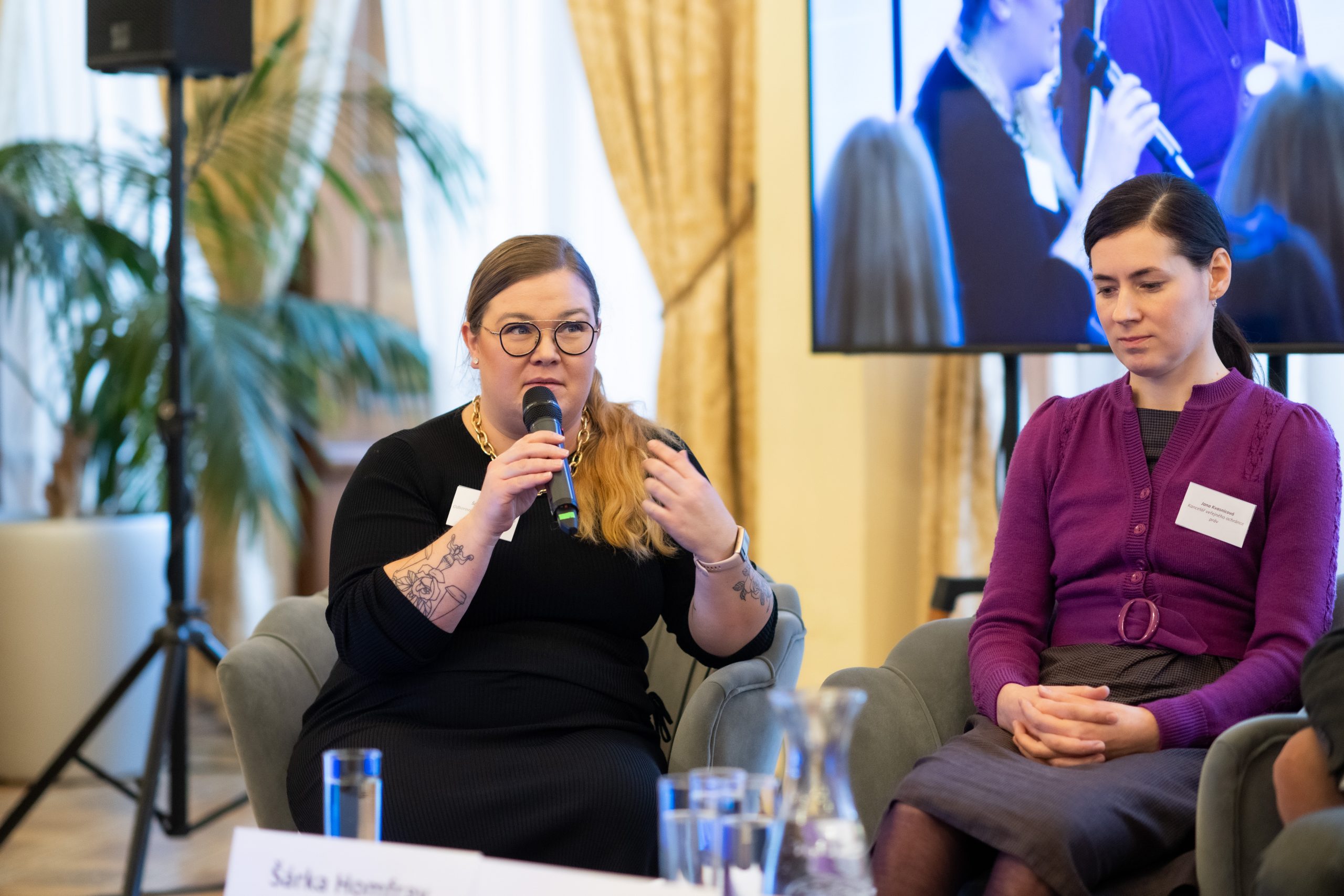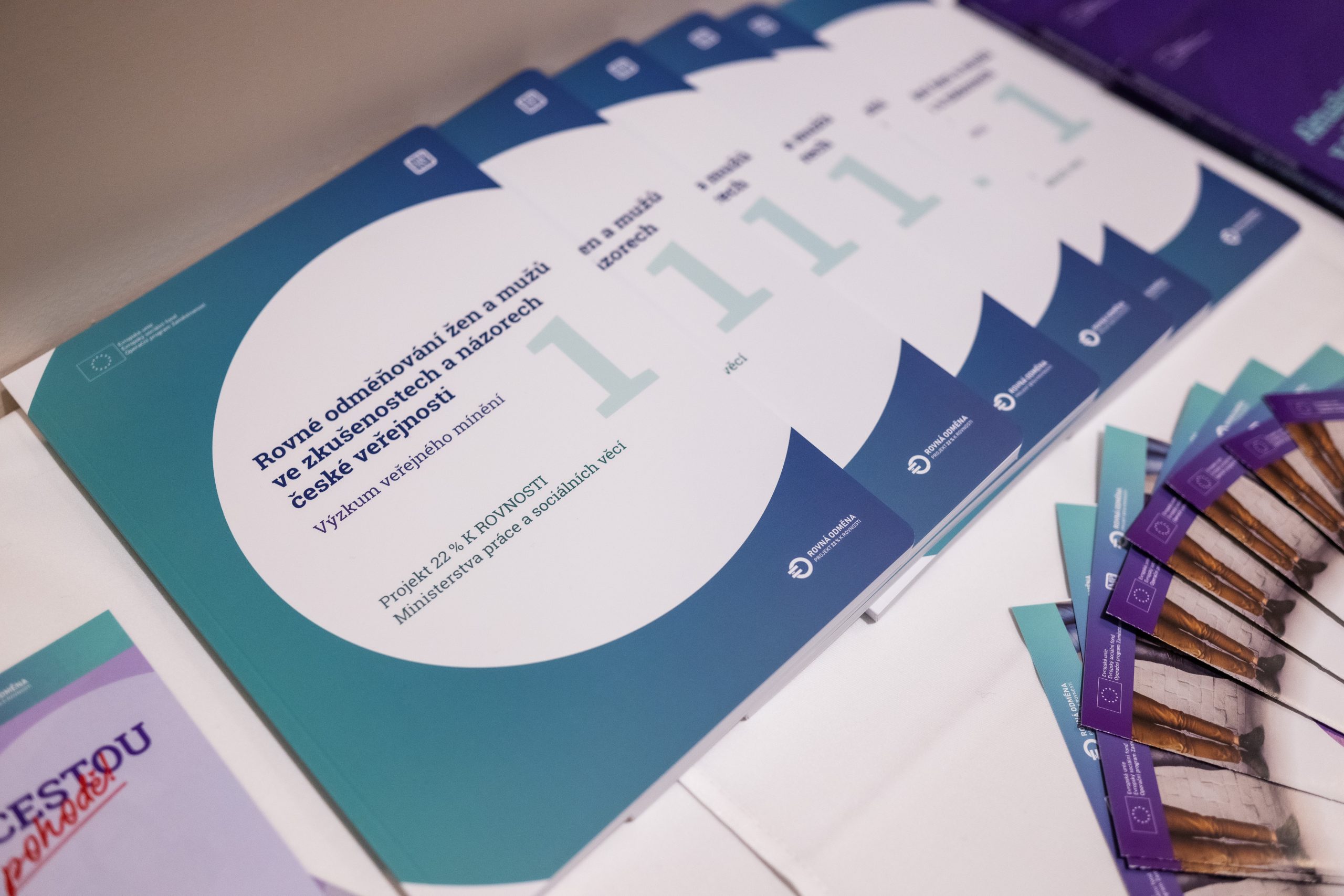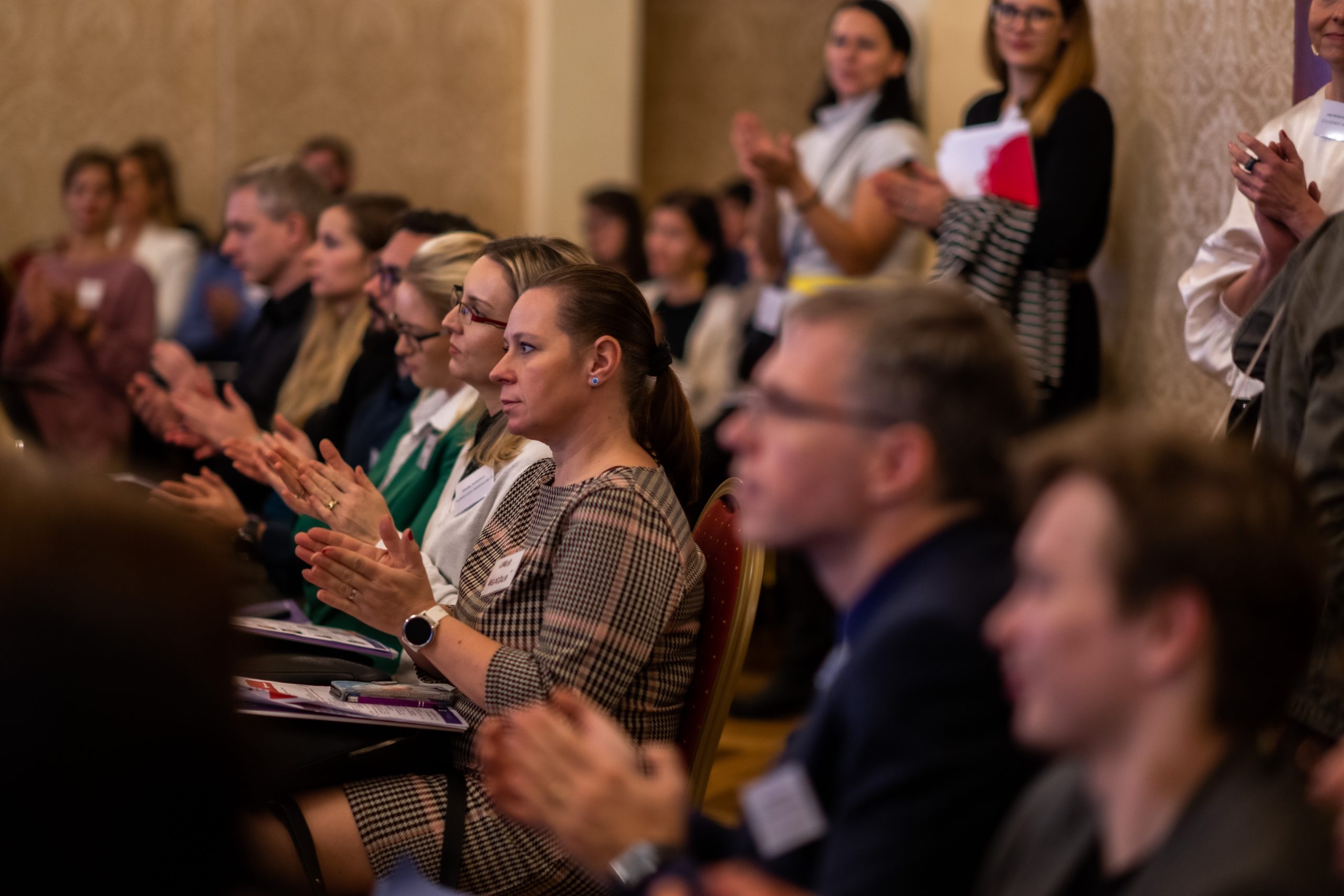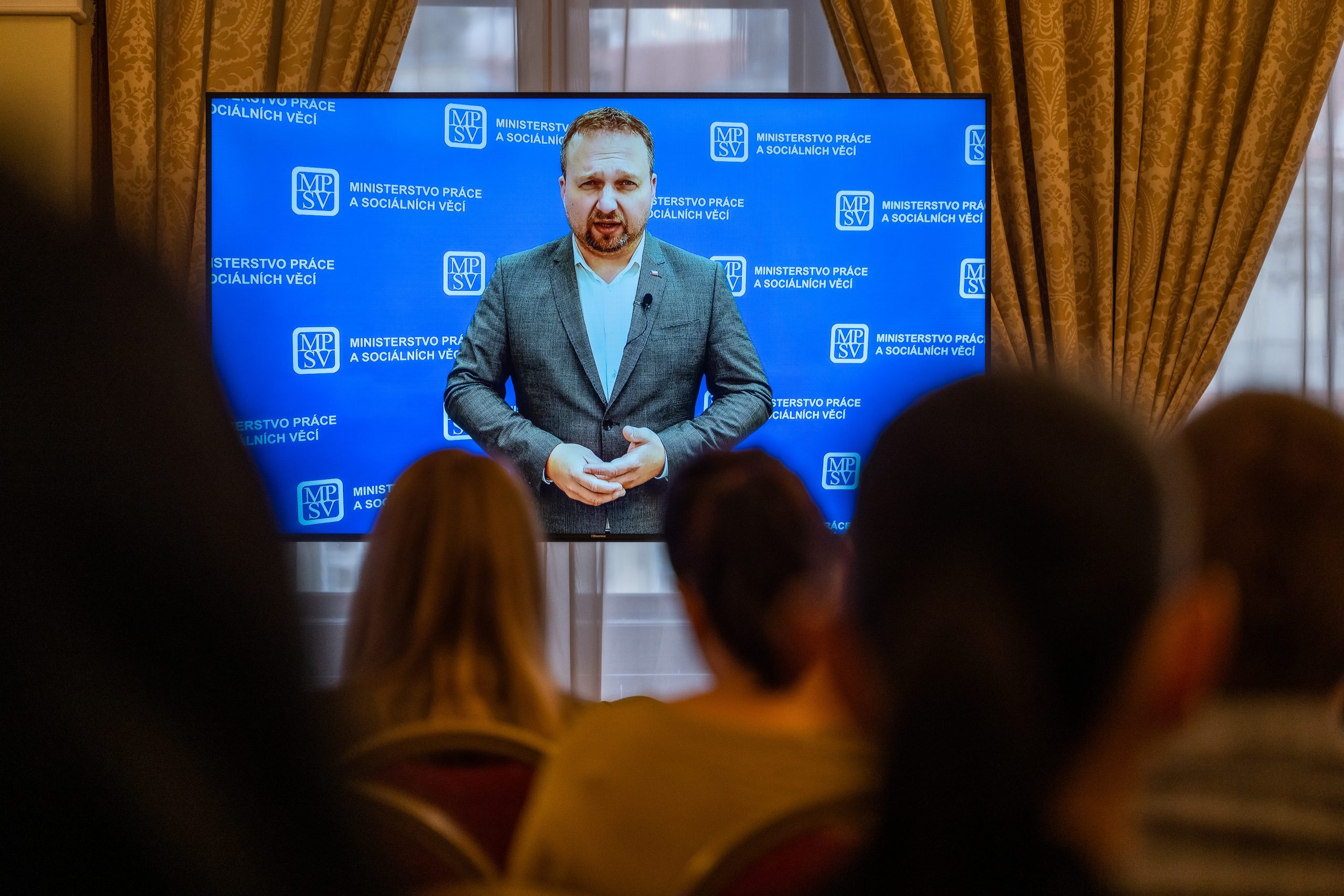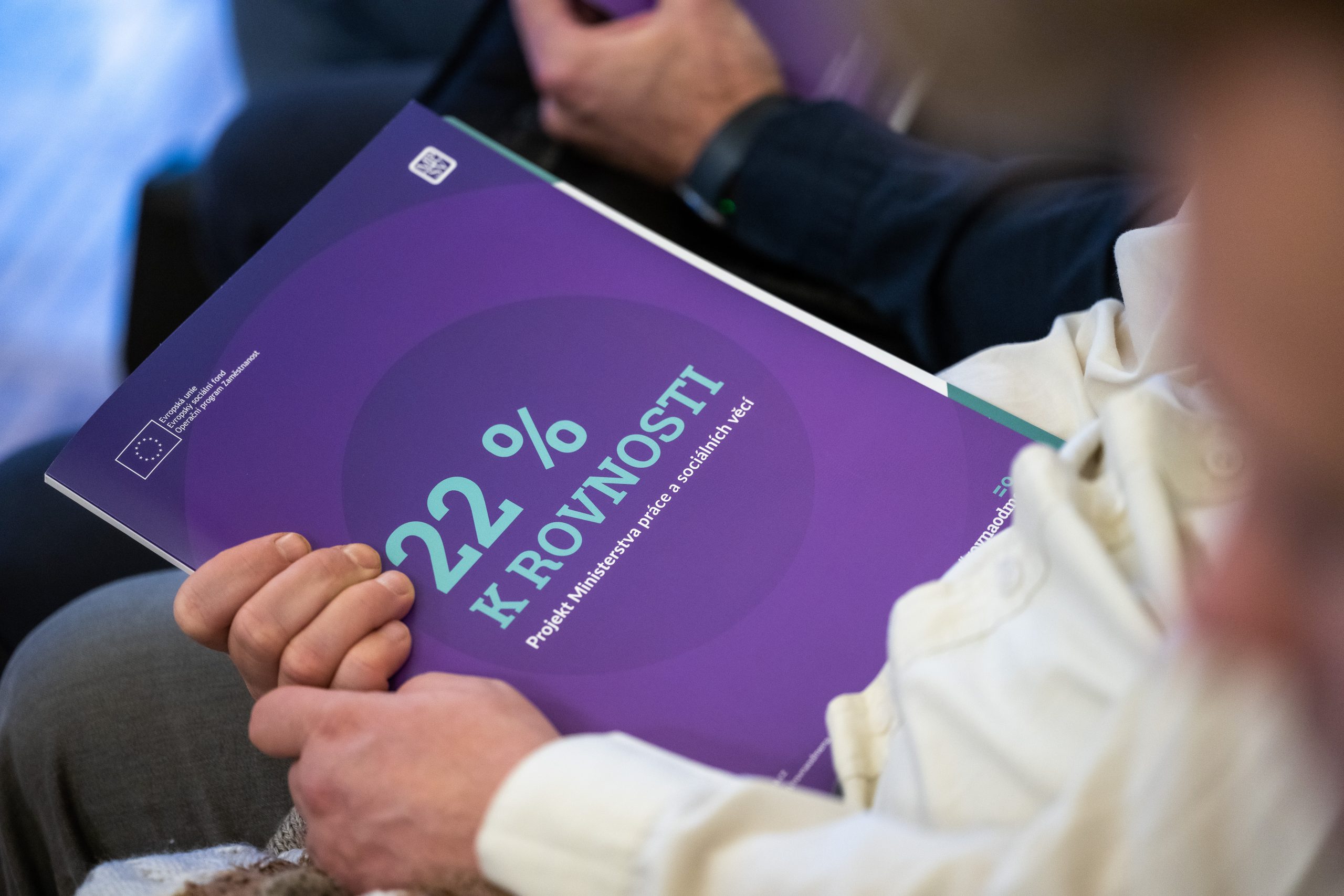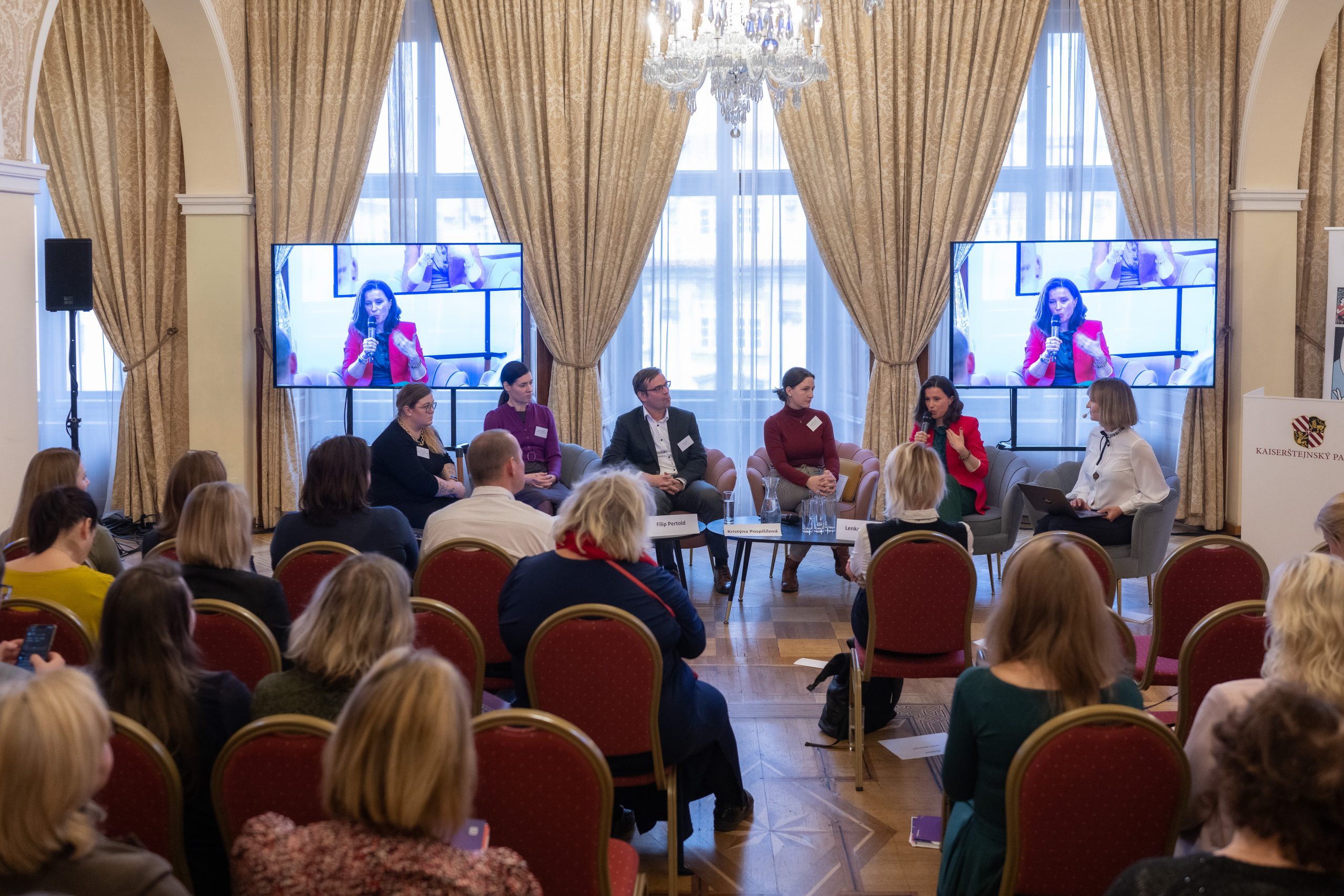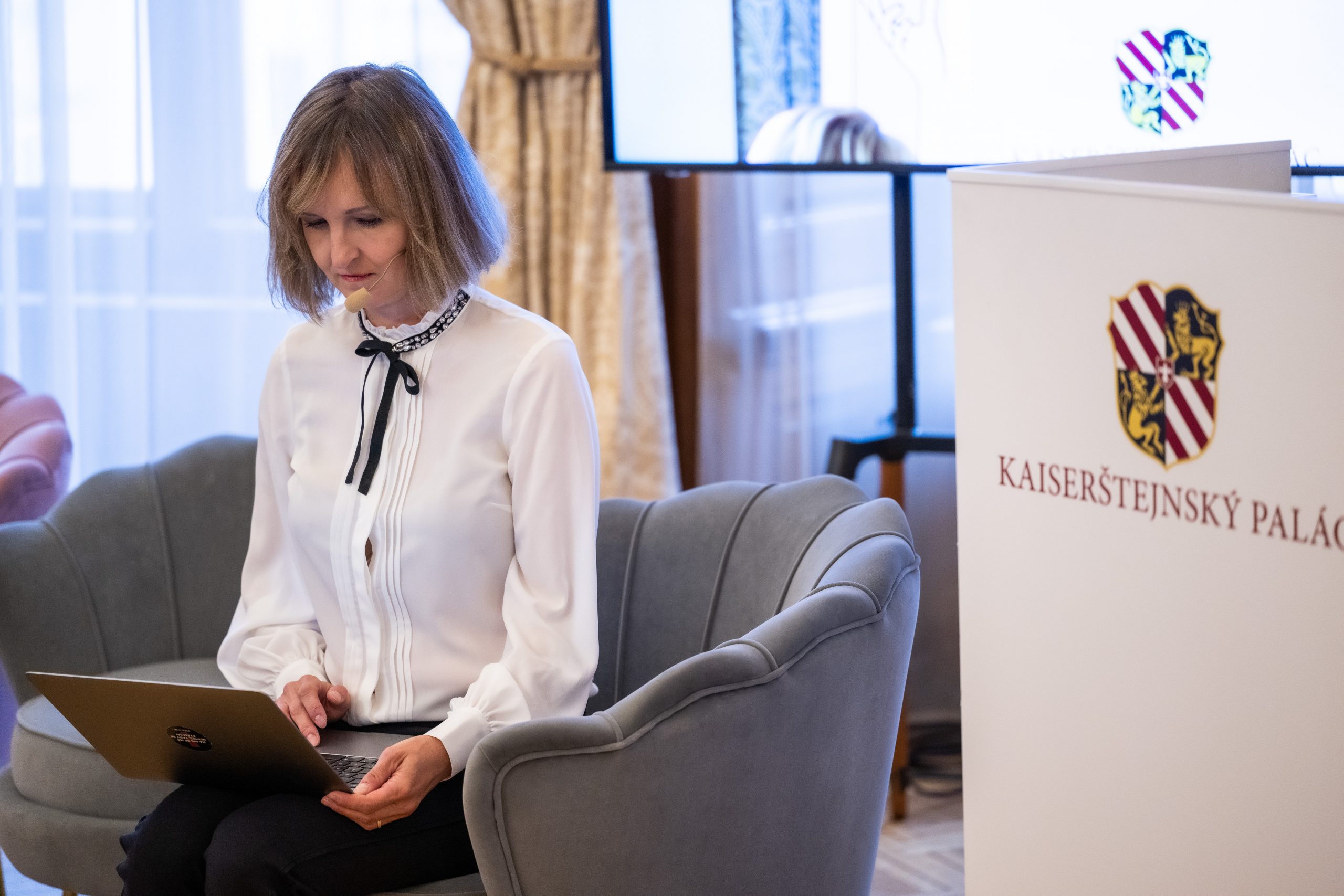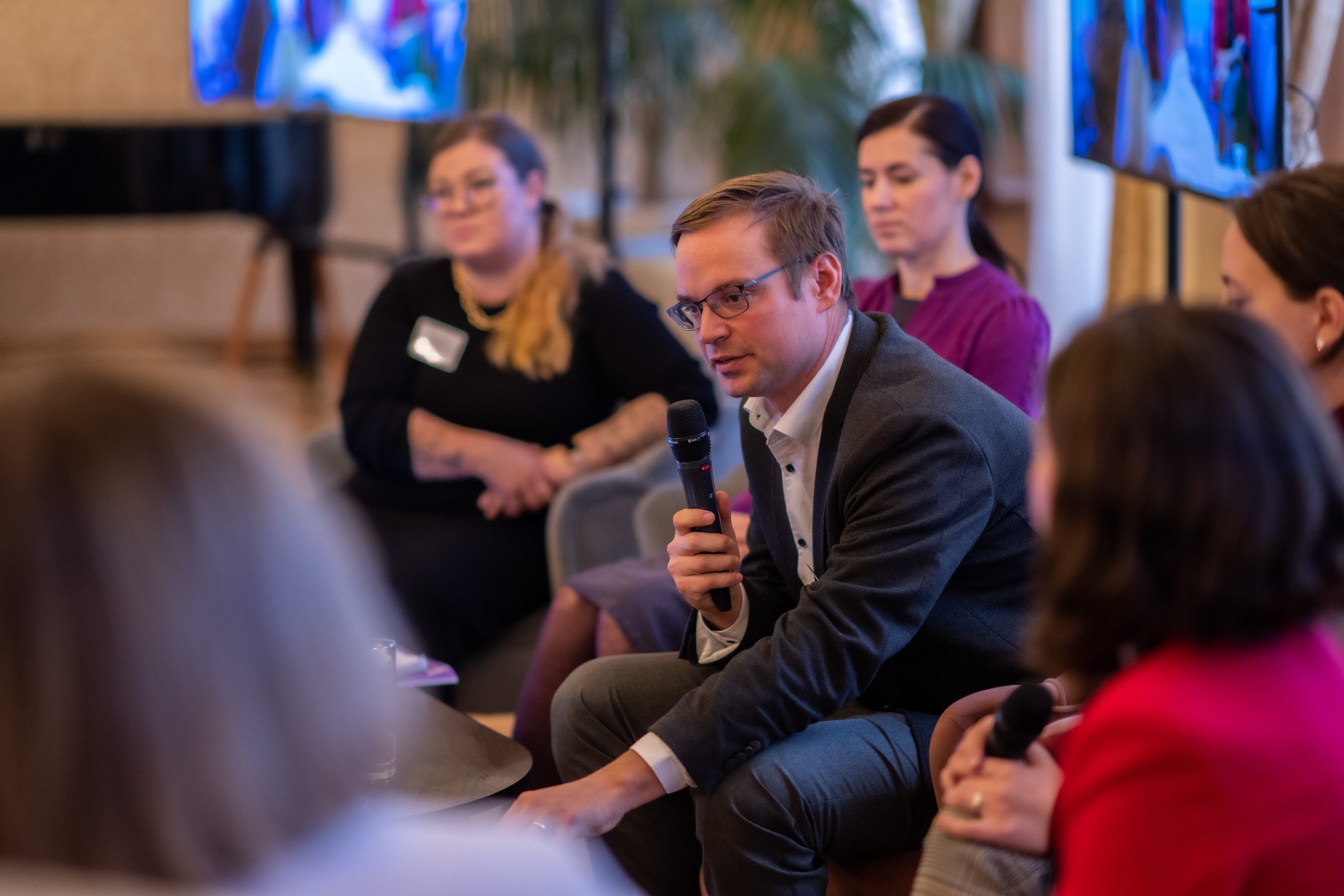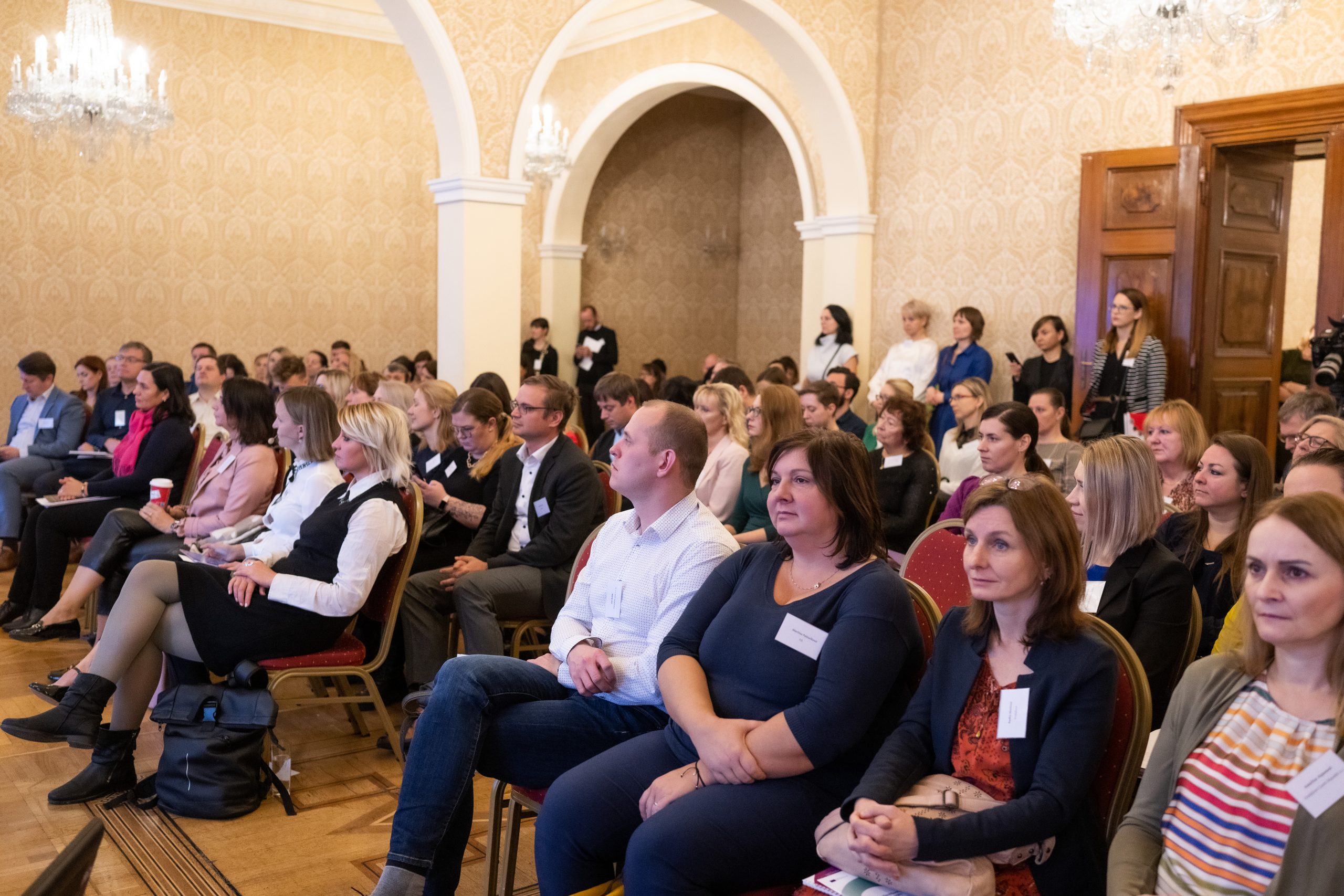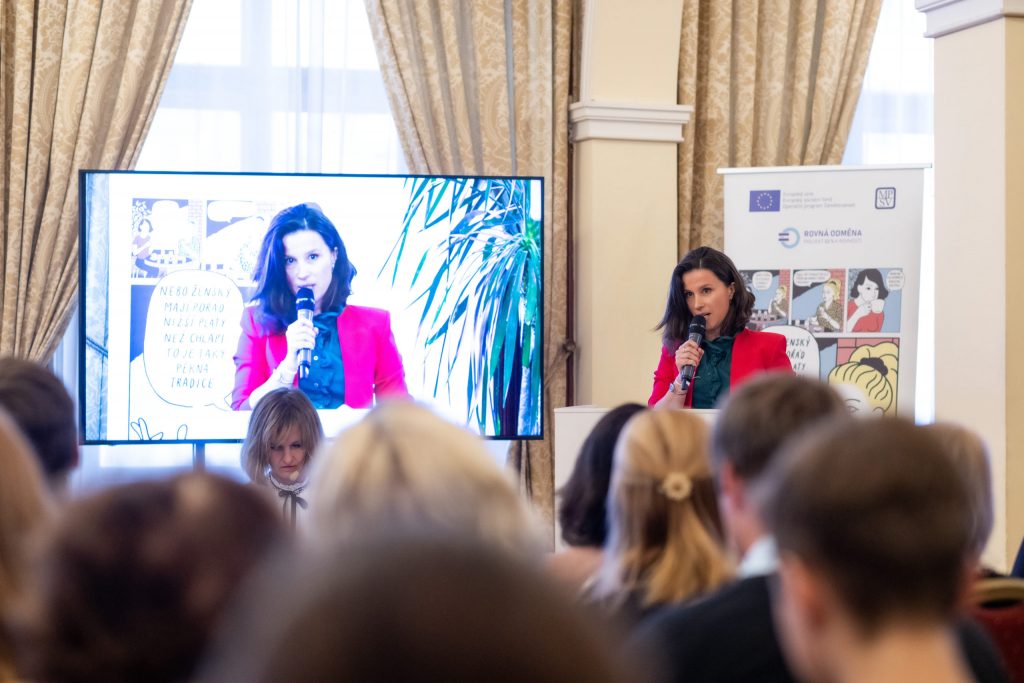Equal pay needs to be further explained and addressed in practice. Experts, companies and system institutions agree.
On Tuesday 15 November 2022, at the final conference of Gender Pay Gap Reduction Portfolio of the Ministry of Labour and Social Affairs (MOLSA) the systemic work in the field of equal pay for the past six years was summarised and goals for the near future were set.
The conference programme was divided into morning debates and afternoon, practice-oriented workshops. In the morning, Marie Bastlová, known, among others, from the Seznam Zprávy platform, where she prepares interviews for the podcast „Ptám se já“, took the moderator’s microphone. At the beginning of the conference, Marian Jurečka, Minister of Labour and Social Affairs, greeted all present remotely and stressed the importance of the topic. He was followed by Jana Skalková, head of the advisory team of the Minister of Labour and Social Affairs. She spoke about the „invisibility“ of women on the labour market, which prevents them from getting more promotion, and the need to expand the possibilities of flexible forms of employment.
Women should be seen and heard
In the morning session we welcomed a special guest, the CEO of the American staffing agency ManpowerGroup for the Czech Republic and Slovakia, Jaroslava Rezlerova. She continued the idea of invisibility of women and opened the topic of stereotypes. „There is still a persistent idea that women do not support their families and therefore may have lower remuneration. We have talked about this a lot in our company and we still don’t know why this happens,“ she said, adding: „I believe that women should not be mentored at work, but sponsored. By that I don’t mean financial sponsorship, but direct support to help them get a foothold, to be seen and heard more.“
Lesia Radelicki, a member of the Cabinet of the European Commissioner for Equality, Helena Dalli, also joined virtually. Ms Radelicki talked about the forthcoming European directive on pay transparency, which is expected to be a major help in uncovering the causes of inequalities in small and large companies. She also explained the reasons that led the European Commission to prepare the directive and the expectations associated with it.
GPG declines, but no reason to celebrate
Ms Radelicki was followed by Lenka Simerská, the head of the Gender Pay Gap Reduction Portfolio at MOLSA. She went back to six years ago, when gross unadjusted GPG was 22% and the problem was being addressed systemically at EU level. „The original project is now coming to an end and the next stage is about to begin, which will be even more practical under the name of Equal Reward,“ she said. Lenka Simerská further explained that although the GPG is now at 16%, this is not a cause for celebration. She said that while the gross GPG has decreased slightly every year, the pay gap for the same position shows almost no change. This means, among other things, that some low-wage women are disappearing from the labour market and thus dropping out of the statistics. „These women are switching to precarious forms of employment, to agreements, temporary jobs or the shvarcsystem, and their worsening situation paradoxically improves the statistics. There are more partadoxes of the Czech GPG and there is a lot of room for change. However, there is also good news. We are seeing an increased interest in our topic and we see that companies and institutions are starting to understand that the ball is now in their court,“ Simerská concluded.
Interest from employees and employers is growing
In the morning panel titled Equality in pay over time, Lenka Simerská discussed the issue with Kristýna Pospíšilová, a statistician at the Institute of Sociology of the Czech Academy of Sciences, Filip Pertold, an economist from CERGE-EI and the think tank IDEA, Jana Kvasnicová, head of the Equal Treatment Department of the Office of the Public Defender of Rights, and Šárka Homfray, a lawyer at the Trade Union of State Bodies and Organizations. The panelists agreed that it is important to continuously map the situation and work with data that describe the Czech environment. A number of researches and analyses that have been produced during the five years of the Equal Pay project are essential to address the problem. Šárka Homfray pointed out that women are still more aware of the issue of (in)equality than men and that there is still a lot of work to be done in the area of gender stereotypes.
Kristýna Pospíšilová then mentioned positive phenomena. One of them is the interest in the Logib tool, which reveals pay inequalities. According to her, 20 companies, i.e. about 19,000 employees, have already undergone the Logib analysis in the pilot phase. Another reason for optimism is the fact that the GPG issue is reaching the younger generation, who have not yet entered the labour market. Lenka Simerská added that she is observing the growing interest in consultations on inequality and also the qualification of the questions that come to the Equal Pay project’s consulting room. „I think we are on the threshold of a time when employees will start to take much more interest in their rights,“ she said.
Good practice: IKEA and Plzeňský Prazdroj
In the second part of the morning programme, gender expert Jana Černoušková took over the moderator’s baton to interview representatives of employers who can be role models for others when it comes to equality. The guest chair was occupied by Daniela Kučová, Total Rewards Manager for the Czech Republic, Slovakia and Hungary at IKEA, together with Martin Hruska, Compensation and Benefits Manager at Plzeňský Prazdroj, where she is also responsible for HR Operations for the Czech and Slovak Republics. Both HR specialists agreed that fairness of remuneration is part of the overall corporate culture in their companies and that they consider it important that all employees are included in discussions on this topic. „Conversations with our people reveal sometimes very surprising facts. For example, we thought that the pay gap due to parenthood was mainly a problem for women in their 30 years, but through discussions in working groups we found that it can arise much earlier, at a stage when women are expected to be planning marriage and parenthood. We need to systematically educate managers to overcome these prejudices,“ Daniela Kučová summarised her findings.
What’s the same job?
The lunch break was followed by three parallel expert sessions. Hana Brablcová, a lawyer at the Equal Treatment Department of the Ombudsman’s Office, together with Petra Sofia Haken, an expert for equal pay methodologies, led an interactive workshop entitled „Equal pay for equal work?“ „Most of all, the attendees were interested in a discussion about regional differences in the case of a court case between two drivers working for the Czech Post. This shows the importance of discussing the value of work and comparing it on the basis of objective criteria. There has also been interest in publications on the topic of equal work, which go into detail on other case studies and practical examples of how to compare equal work and work of equal value,“ said Petra Sofie Haken. The roundtable also included an expert discussion on the Gender Pay Gap and Parenthood. Experts discussed how to make the data of the Average Earnings Information System as accessible as possible and link it to other databases in order to obtain relevant data on the causes and consequences for gender pay equality. Possible ways forward were suggested.
Publishing the results of Logibu’s analysis requires courage
The next item in the afternoon session of the conference was Logib as a tool for equal pay. Representatives of organisations that have already successfully completed the Logib analysis shared their experiences with it: the Head of Projects and Research Support at the Institute of International Relations Lucie Božková, Zuzana Hochelová from the International Clinical Research Centre at St. Anne’s University Hospital and Stanislava Šimánková, HR manager at the Technology Agency of the Czech Republic. Jana Skalková took the moderator’s microphone, and the debate was accompanied by experts from the Rovná odměna project, Dita Jahodová and Helena Skálová, who have been developing the Logib tool and conducting analyses of income equality among employers since 2016. According to them, the focus of the debate was how to communicate the findings of the analysis to the management so that it does not end up „in a drawer“, but on the contrary leads to the gradual straightening of unjustified pay gaps and closing of GPGs. And it was obvious that the panellists present did not lack it. „However, management support for the closure of GPGs, as was the case in our country, is not always a given. We certainly recommend preparing a proposal directly for the management where to get money to compensate the income of undervalued persons,“ noted Lucie Božková from the Institute of International Relations.
„We also see the conference of the Gender Pay Gap Reduction Portfolio as the beginning of another path that will lead to greater transparency and a more open corporate culture. I believe that the value of work and its comparison on the basis of objective criteria will be an integral part of the conference and that a properly set system will ensure fair remuneration not only at the level of women – men categories, but for all employees without distinction,“ Lenka Simerská, the head of the Gender Pay Gap Reduction Portfolio Team, summarized the message of the conference.
